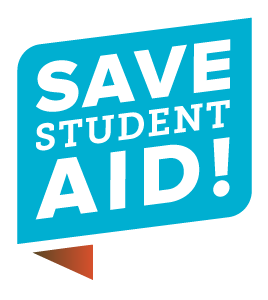About Student Aid Alliance
The Student Aid Alliance is a coalition of over 40 higher education organizations united in our support for federal student aid. The Student Aid Alliance is co-led by the American Association of Community Colleges (AACC), the American Council on Education (ACE), the American Association of State Colleges and Universities (AASCU), the Association of Public and Land-grant Universities (APLU), the Association of American Universities (AAU), the Council for Opportunity in Education (COE), the National Association of Independent Colleges and Universities (NAICU), and the National Association of Student Financial Aid Administrators (NASFAA).
What We Support
Federal Pell Grant Program
Pell Grants are the largest student aid program and the foundation of federal student aid. Unlike student loans, they do not have to be repaid. They are awarded from the federal government to low-income students for undergraduate study at all colleges and universities.
Federal Supplemental Educational Opportunity Grants (SEOG)
SEOG grants, unlike student loans, do not have to be repaid. They are awarded to the neediest Pell Grant recipients at participating institutions. Colleges match federal funding to help low-income students borrow less and persist to completion.
Federal Work Study Program
FWS provides part-time jobs to help students work their way through college while building professional skills. Colleges and other employers match federal funding for jobs at participating institutions, local businesses, or in community service. Work study recipients are connected to the campus community, which helps them complete college on time.
TRIO Programs
TRIO programs help low-income, first-generation to college Americans enter college, graduate, and launch a career. The programs provide a pipeline of educational outreach and student support services from middle school through postgraduate study. The institution-based programs provide tutoring; personal, financial and career counseling; and special instruction in reading, writing, mathematics and study skills.
GEAR UP
Gaining Early Awareness and Readiness for Undergraduate Programs (GEAR UP) targets at-risk 7th grade cohorts and works with them through high school to prepare and apply for college. States and local partnerships receive federal funds to create programs.
Graduate Programs
The Graduate Assistance in Areas of National Need (GAANN) program supports increasing the quality of students who prepare for research and teaching. GAANN targets high-performing and high-need graduate students in areas of national competitiveness.
Who We Are
Student Aid Alliance Members
American Association of Colleges for Teacher Education
American Association of Collegiate Registrars and Admissions Officers
American Association of Community Colleges
American Association of State Colleges and Universities
ACPA-College Student Educators International
American Federation of Teachers
American Indian Higher Education Consortium
American Psychological Association
Association of American Universities
Association of Catholic Colleges and Universities
Association of Community College Trustees
Association of Governing Boards of Universities and Colleges
Association of Jesuit Colleges and Universities
Association of Public and Land-grant Universities
Consortium of Universities of the Washington Metropolitan Area
Consortium on Financing Higher Education
Council for Christian Colleges and Universities
Council for Opportunity in Education
Council of Independent Colleges
Council on Social Work Education
National Association for College Admission Counseling
National Association of College and University Business Officers
National Association of College Stores
National Association of Colleges and Employers
National Association of Diversity Officers in Higher Education
NAFSA: Association of International Educators
National Association of Graduate-Professional Students
National Association of Independent Colleges and Universities
National Association of State Student Grant and Aid Programs
National Association of Student Financial Aid Administrators
NASPA – Student Affairs Administrators in Higher Education
National College Attainment Network (NCAN)
National Council for Community and Education Partnerships
National Education Association
State Higher Education Executive Officers Association
UPCEA – Leaders in Professional, Continuing and Online Education
